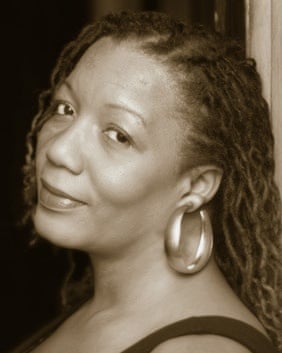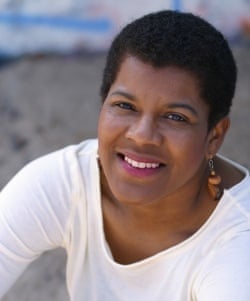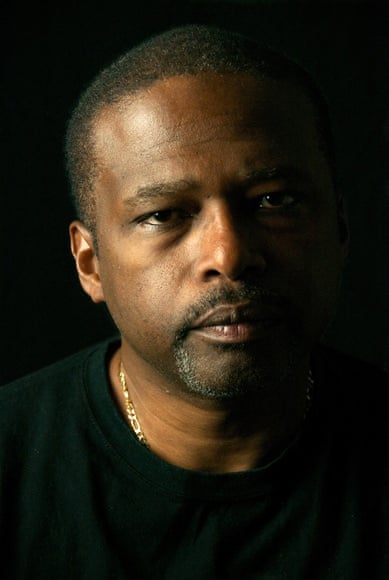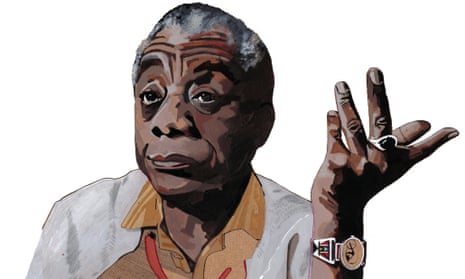I grew up with African American literature. My parents hustled and jived to the poetry of Amiri Baraka and Nikki Giovanni, and my grandparents were captivated by the astuteness of James Baldwin, Zora Neale Hurston, Richard Wright and Langston Hughes. I absorbed all of it.
These black literary giants drove the social commentary of their day, using their creative works as the vehicle. It’s not by accident that their writing is considered to be major work of American literature: their characters are trapped by the racist atmosphere in which they live, a context specific to the US.
Yet despite feeling empowered by these books, I often wonder if literature written by black authors, in order to be considered successful or even “good”, must address the social ills of the day. As black writers, are we bound to the race narrative? Many prominent thinkers in black literary criticism think so.
In fact, it’s commonly believed that “good” writing by black authors is birthed from oppression, and marginalization is viewed as a key marker for black literature. This implies a direct link between the authenticity of the literature and the sociological and political perspectives of African Americans.
After all, the recent evidence of police brutality and racial injustice against black people, and the subsequent Black Lives Matter movement, is likely one of the many reasons why Ta-Nehisi Coates’ Between the World and Me sits comfortably on the New York Times bestseller list.
Is success defined only by whether black writers write about race? Or, is there room for a diversity of stories that don’t necessarily align with race issues?
I reached out to three prominent black writers to share their thoughts.
Bernice McFadden: ‘Never has an editor told me what to write’
I’ve published with three different houses and not once did I have an editor tell me what I should or should not write. While I’ve tackled a variety of different topics in my novels (domestic abuse, child molestation, alcoholism and so on) as of late, my primary focus has been historical fiction as relates to the African American experience. This is a choice I made for myself. It was not thrust upon me.

My stories do evolve organically, but this is not to say that I’m not influenced by my environment. Of course, those current events you mention do work themselves into my narrative in some way, shape or form.
You may remember the incident about Millenia Black, who had written a multiracial novel and was told by her editor that she had to make all of the characters black? This simply because she was a black author? Millenia sued the publisher and won. I’m sure this shook up the industry, causing publishers who still maintained those antiquated beliefs to move forward with caution.
I don’t want to believe that the success of a black writer is dependent upon he or she writing about race and oppression. I don’t want to believe it, but with big publishing that might very well be true. Perhaps now, instead of telling a writer to change the ethnicity of his or her characters, publishers are simply rejecting those stories for publication?
I don’t know. It’s all very ridiculous and tiresome.
Bernice McFadden is the author of Gathering of Waters, a New York Times Notable Book of 2012, Glorious, and Nowhere is a Place, a Washington Post Best Fiction winner
Tananarive Due: ‘Black characters in fiction are still revolutionary’
As a very young writer – kindergarten through about fifth grade – I most often wrote about black characters. My very early stories were science fiction and fantasy, with kids stowing away on spaceships and a girl named Tilly who was trying to get into the Guinness Book of World Records.

Inspired by Alex Haley’s Roots, at the age of 11 I began a handwritten Middle Passage story called “Lawdy, Lawdy, Make Us Free”. I was raised by civil rights activists with a very strong sense of racial history and consciousness.
But something happened. As I got older, I began to write more of the world reflected in the books I read in school, which meant writing white male protagonists. Even as late as graduate school, I was trying to write a novel about a white man whose playwright brother was dying of leukemia – which, given that I did not have a brother, was a story that did not reflect me at all.
I recall no moment when I said “I don’t want to write black”. But when I did write a black (again, male) protagonist in a novella in college, he lived in the hood (which I had not) and was grappling with a brother who was running the streets. I came to view black fiction as either “urban”, as in the street tale in my novella, or “rural”, as in Alice Walker and Toni Morrison – which I greatly admired, but felt more like the world of my country-raised mother than mine.
So the decision to write about a black family in my first novel, The Between, was a watershed. Somehow, I realized I could write books about black characters who reflected my own experiences, or otherworldly experiences – not just stories of history, poverty and oppression.
I believe black characters in fiction are still revolutionary, given our long history of erasure. While most of the characters in my upcoming short story collection are black, race often has little to do with their core stories. The titular novella, Ghost Summer, is the most steeped in race: about the horror of growing up in a small Florida town with a history of both racism and haunts, and how a ghost hunt fosters healing after generations. Race is also at the periphery of the linked short story Summer, where a toddler’s demonic possession is juxtaposed with the discovery of several corpses (presumed black) on a wealthy white landowner’s property.
The other stories are about survival, transitions and trauma recovery, themes that resonate deeply with the black experience: whether my protagonist is a werewolf, a scorned plague survivor or a mother grappling with a child’s illness. They proclaim “Yes, I’m here!” while their skin color rests only on the surface of their deeper humanity, which is true for us all.
Tananarive Due is the author of 13 books including the African Immortals series; American Book Award and NAACP Image award winner.
Jeffery Renard Allen: ‘Literature is ghettoized’
The problem with publishing in this country is that publishers have no surefire way of selling books, so they tend to pigeonhole authors into marketing categories.
These strategies hit African Americans especially hard, in a country where the inequities and contradictions of race extend into every aspect of our society and culture. Literature is ghettoized.

When I first started out writing, I was young and naive enough to think that the literary playing field was even, that good books always find their way into the world and receive attention. Of course, that simply isn’t the case.
Although a number of African American fiction writers have achieved acclaim, the fact remains that our society by and large views the work of black writers as insignificant, of less importance than the work of white authors. With that mindset, too few works of deserving fiction by black authors get published. Of the books that do get published, too few get reviewed. And often book reviewers only talk about black authors in relation to other authors, as if what we write plays no part in shaping the intellectual, political and cultural conversation in our country and abroad.
Then there is the matter of literary prizes.
African American fiction writers almost never get nominated for the major awards, and too few of us win them. Ralph Ellison won the National Book Award, still our country’s most prestigious literary prize, for his novel Invisible Man in 1952. It was almost 40 years before another African American fiction writer won (Charles Johnson for his 1990 novel Middle Passage). Then it was more than 20 years before Jesymn Ward won for her 2012 novel Salvage the Bones.
The facts speak for themselves. Writers of international importance such as Toni Morrison, John Edgar Wideman, Paule Marshall, Ishmael Reed and Percival Everett never received the award. The history of the Pulitzer prize is just as tainted: only three black fiction writers have received it.
The unfortunate reality is that for publishing to be democratic, African Americans need to have a major presence in the publishing world – as publishers, agents, editors and publicists, and as reviewers for books and jurors for prizes.
Jeffery Renard Allen is the author of the novels Song of the Shank and Rails Under My Back; a winner of the Ernest J Gaines Award for Literary Excellence; and a 2015 Guggenheim Fellow

Comments (…)
Sign in or create your Guardian account to join the discussion